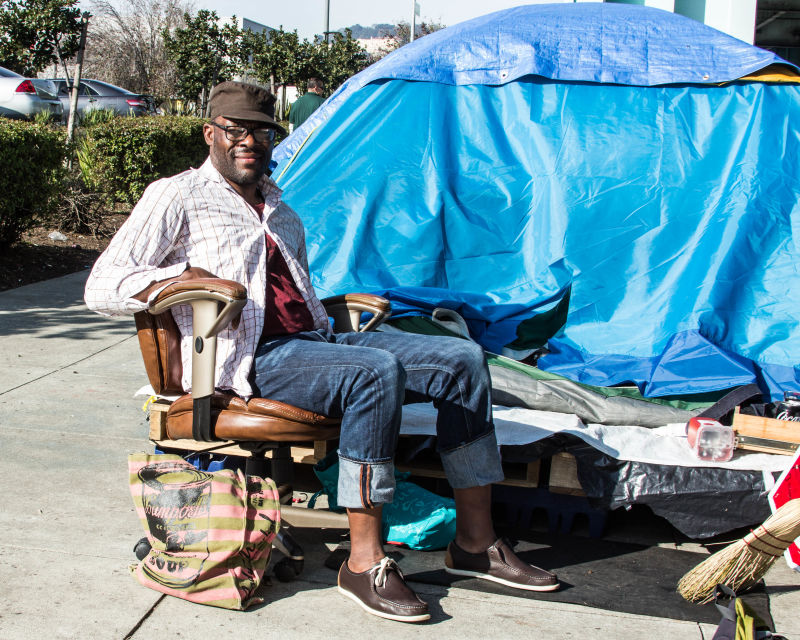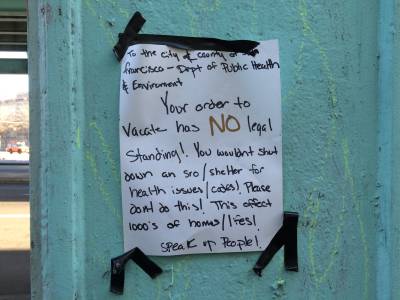Perry Foster's existence on San Francisco's Division Street is a long way from the life he says he lived before 2009. That's when he was shot while living in San Francisco's Tenderloin.
What were the circumstances?

Perry Foster's existence on San Francisco's Division Street is a long way from the life he says he lived before 2009. That's when he was shot while living in San Francisco's Tenderloin.
What were the circumstances?
"Wrong place, wrong time," Foster says. "My addiction kicked in. It was over drugs, to be honest."
Before that, he says, he was trying to make his way through the City College of San Francisco and had hopes of attending UC Berkeley. Since then, "it's been a struggle."
"I was never homeless. I never thought in my wildest dreams that I'd be pushing a buggy," Foster says. "Not that I'm above it, or better or worse, I just never imagined that would be part of my walk."
I met Foster while walking along Division Street last week, after the city declared the tent encampments in the area a public health hazard and before Tuesday's operation to clear the area and attempt to prevent tent dwellers from returning.
Foster, a Grand Rapids, Michigan, native, said he's skeptical that things will really change in the neighborhood. He notes that street dwellers have been moving from block to block ahead of city crews in the Division Street corridor for years.
"We'll do what we always do," he says. "If I'm here, I'll pack up, but I can pack up and go around the corner. Or wait till they leave. They leave and we're right back here."
More shelter facilities that allow people to live with "some semblance of normalcy" would be a start, he says.

"Why don't you come with a solution instead of, 'You have to move. I don't care where you move, but you have to move from here,' " Foster says. "That's not a solution. That's not even a Band-Aid. ... This city says it's brilliant. ... Well, I want to see some brilliance. I want to see this thing be resolved."
If he had the power to change one thing for those living on the streets?
"Empower people," he says. "Tell people you have the opportunity, you have what it takes. You have to empower people. You have to give them opportunities, you have to give them incentive, you have to tell them you need to aspire for something. You need to reach out to something. You need to ask for help. And if you ask, it's there for you."
To learn more about how we use your information, please read our privacy policy.